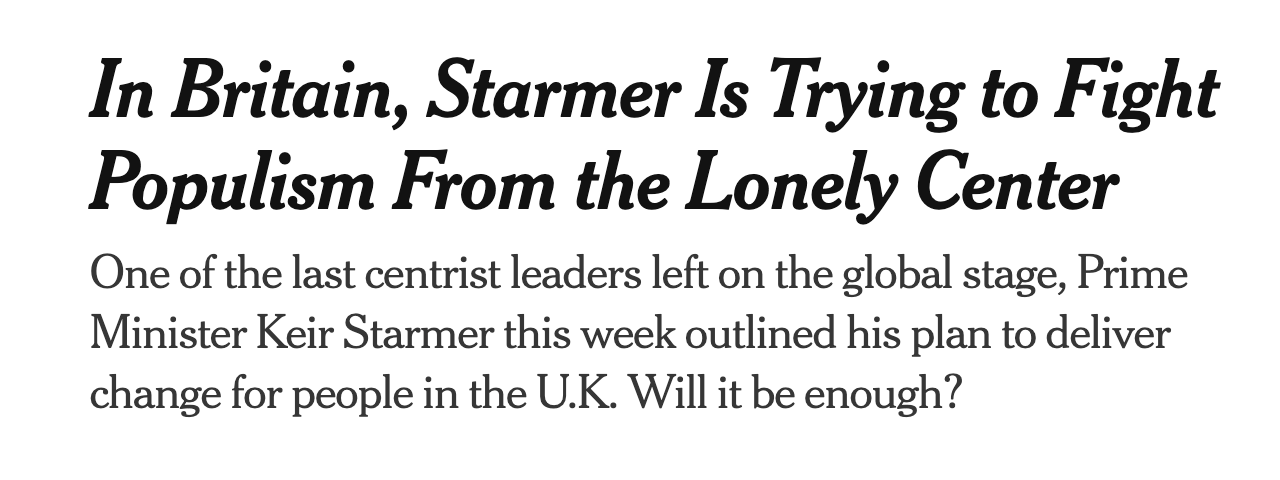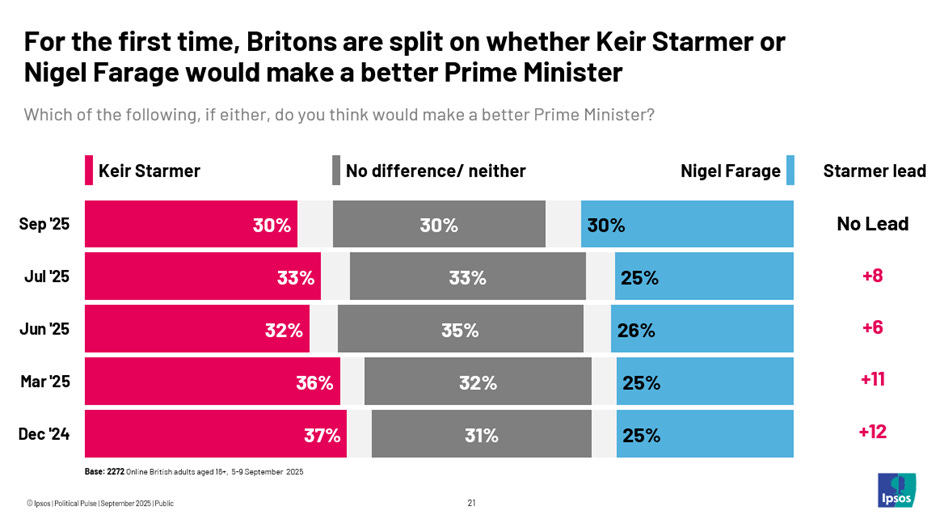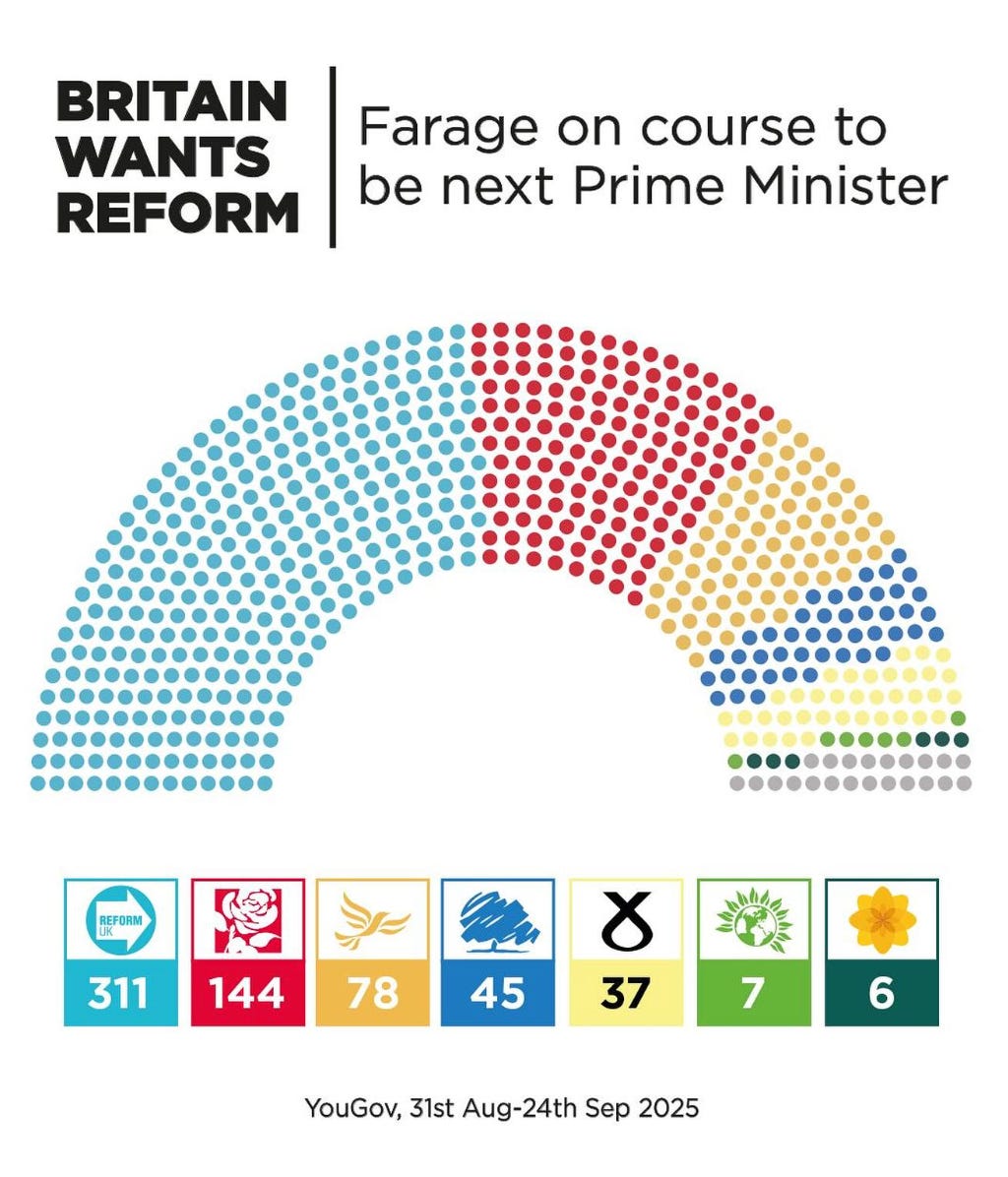Every election cycle produces the new miracle cure: Democrats should moderate. Ezra Klein has framed it as choosing power over purity—living with candidates who diverge from standard progressive preferences on abortion, immigration, or trans rights, the way Obama once opposed same-sex marriage to win a national coalition. Matt Yglesias argues that economic populism can’t bribe non-college voters out of disagreements on policing, immigration, guns, or gender; the party needs a more moderate national brand, not just a few carefully triangulated nominees. Adam Jentleson warns that celebrating competitiveness in Pennsylvania or Wisconsin while writing off Ohio or Florida is bar-lowering that cements minority status.
There’s wisdom in the call to moderation, but little novelty. I don’t even disagree with the instinct—it’s just that it doesn’t reckon with how Democrats already ran their 2024 campaigns.
Watch the highlight reel of some of the highest spend advertisements of Democrats in swing seats in 2024:
In Ohio, Sherrod Brown sells “the most conservative border bill in decades,” backed by border agents, and points to a fentanyl law bearing Donald Trump’s signature. When hit on transgender inclusion in sports, he doesn’t sermonize; he notes Ohio already banned what the ad alleges and says local leagues should decide—citing Republican Gov. Mike DeWine.
In Texas, Colin Allred stands with law enforcement and border officials who say, “Colin’s got our back” and insist that Allred will be tougher than Cruz on crime and the border.
In Montana, Jon Tester boasts that he pushed Biden to expand oil drilling and says “no way to Democrats wanting to give people more money without requiring anything in return.”
In New Mexico’s 2nd, Gabe Vasquez talks about hiring 20,000 border agents and cracking down on cartels, with law enforcement as witnesses.
In Pennsylvania’s 7th, Susan Wild said it outright: she “broke with Democrats” to crack down on cartels and worked with both parties to hire thousands of border agents.
In New York’s 17th, a police officer endorses Mondaire Jones in an ad saying he “voted for more border patrol agents.”
In Arizona’s 6th, Kirsten Engel’s ad has a law enforcement official saying she will “fully fund police” and work with both parties on border security.
The 2024 record is straightforward: frontline Democrats campaigned largely as moderates. Border and police funding, fentanyl crackdowns, oil drilling permits, law-enforcement endorsements, bipartisan validators. The ads show badges and sheriffs. And yet the coalitions barely moved. It feels like talking into a headwind.
We reach for easy fixes because the alternative is a kind of vertigo. It is simpler to believe that swapping positions here and there unlocks the electorate than to sit with the possibility that the crisis is larger than message—that the map is unkind, that political identities have devoured localism, that the emotional weather is set somewhere offstage and rarely shifts on command.
It is comforting to explain losses as a failure of will or discipline on our side; it is harder to admit that much of what we can do, we already do, and the returns are thin. Because what remains is not a fix but a fog.
There are no shortcuts here. Democrats aren’t losing simply for lack of moderation. Perhaps the hardest truth is not a new tactic but a clearer view of the terrain: the sense that the problem may be bigger than our factions allow themselves to say, and the answers less obvious than any side’s catechism. If moderation were the key, the door would be open by now.
Look abroad for a cautionary tale. In the U.K., Keir Starmer—a center-left prime minister who replaced Labour’s Corbyn era with lawyerly, business-friendly pragmatism—won in 2024 on “stability and moderation”: tighter borders without Trump-style theatrics, more police and housebuilding, cautious budgets, and a fiscally bounded clean-energy push. Think competence and calm over activist or populist zeal—pro-NATO, wary of big tax hikes, careful not to spook culturally conservative voters over crime, transgender rights, or immigration.
And yet, a year on, Britain is flirting with something more disruptive. Nigel Farage’s Reform UK—a populist, anti-immigration vehicle roughly analogous to a MAGA spinoff—has surged in polls and seat models, projected to wipe out Labour’s majority if an election were held today. In an information ecosystem where culture wars dominate, a political class wary of offending donors or the right, and a “middle” that drifts with media salience, moderation is easily swamped by deeper currents of identity and grievance.
The takeaway for Americans is caution: “don’t scare the middle” works until the middle itself is being remade. The lesson may be that tinkering at the edges of message isn’t enough. It may demand a more radical break, or a kind of imagination politics has long since forgotten. Which is to say: the way through may be harder, stranger, and further from reach than we want to believe.








